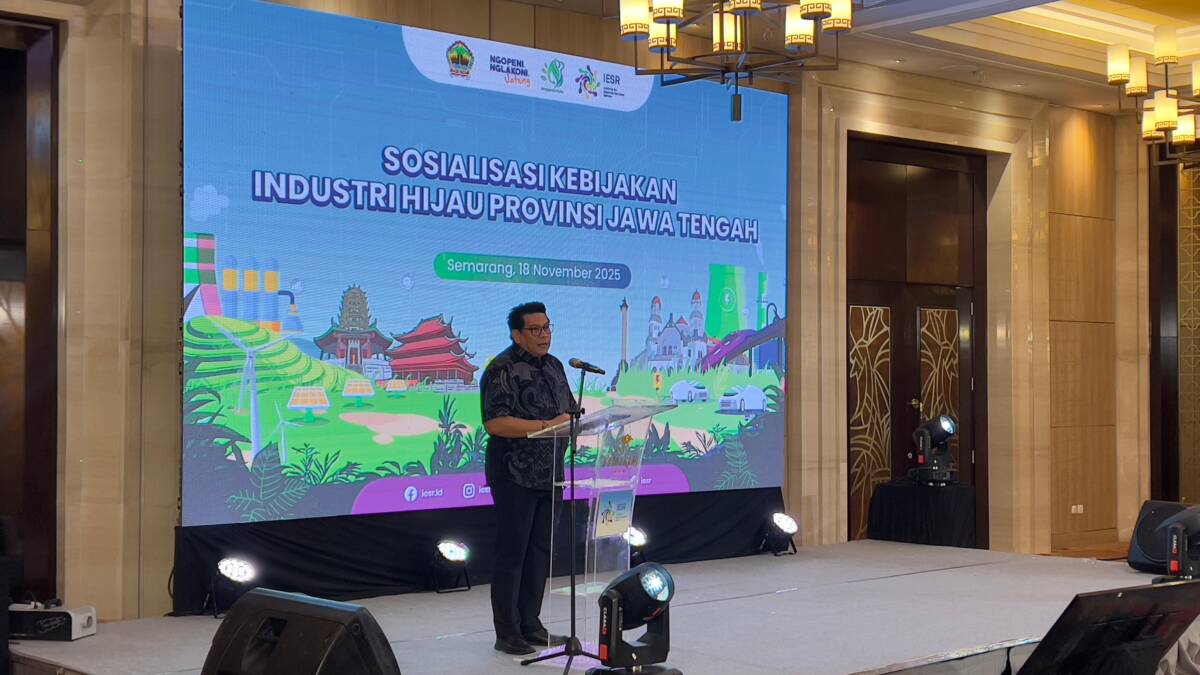Semarang, November 18, 2025 – Central Java Province is emerging as a new alternative industrial hub, following West Java and East Java. This economic growth is marked by the development of several industrial areas in Central Java, such as the Batang and Kendal integrated industrial areas. Garment, textile, furniture, and food and beverage factories also continue to develop in several regencies. With this significant industrial growth, it is not surprising that the industrial sector’s contribution to the Central Java economy will reach 33-34 percent by the second quarter of 2025.
July Emmylia, Head of the Central Java Provincial Industry and Trade Office, stated during the opening of the Central Java Province Green Industry Policy Socialization that Central Java currently faces the challenge of balancing industrial growth and environmental sustainability.
“Transformation towards a green industry is no longer an option, but a necessity to strengthen the competitiveness of regional industries. With its economic contribution and ability to absorb labor, we certainly want Central Java’s industry to become stronger and globally competitive,” said July.
Fabby Tumiwa, Chief Executive Officer (CEO) of the Institute for Essential Services Reform (IESR), stated that the use of renewable energy is key to a globally competitive industry, as many of Indonesia’s export destination countries have adopted Net Zero Emission (NZE) targets, which imply policies limiting products with high carbon emissions. Using renewable energy can reduce carbon emissions from the production process.
Fabby also explained that for entrepreneurs, transforming by adopting renewable energy brings several benefits, ranging from increased competitiveness and market access to efficiency and price stability, to a strengthened corporate image and reputation.
“Companies that proactively take decarbonization steps, such as installing renewable energy for their businesses, will be seen as technology pioneers and part of the solution. This will not only build reputation but, most importantly, build consumer trust,” Fabby said.
Fabby added that with the technical potential of solar energy reaching 195 GW, nearly 3 GW of wind energy, 1 GW of mini hydro, as well as geothermal and biomass potential, the transformation towards a green and sustainable industrial system using renewable energy in Central Java is a sensible investment choice.

